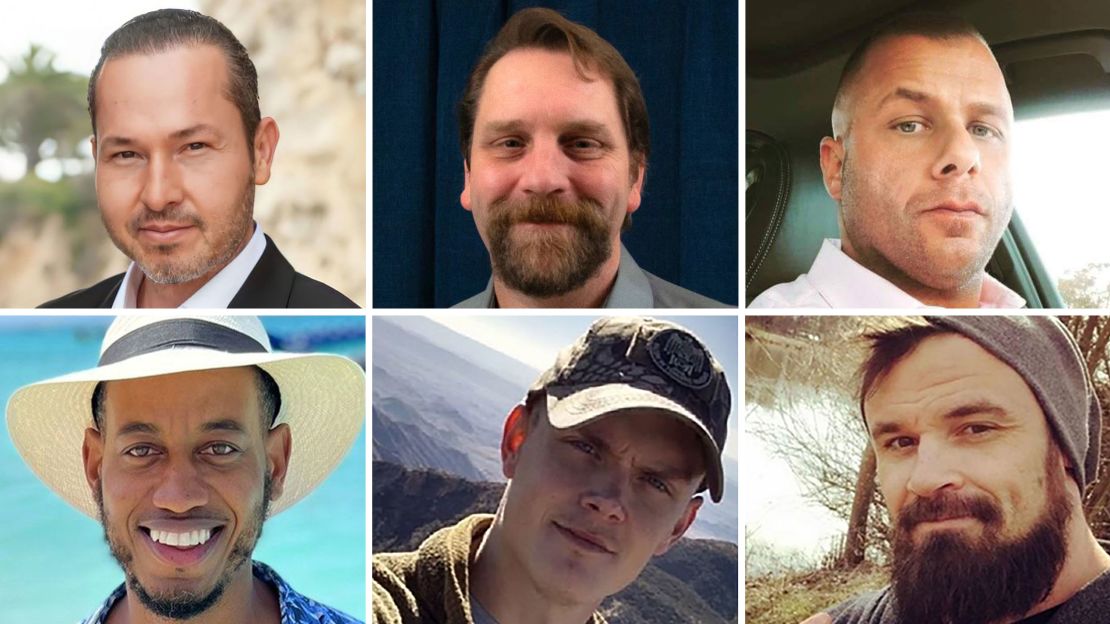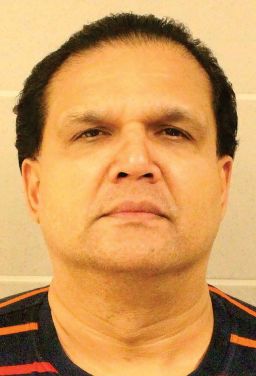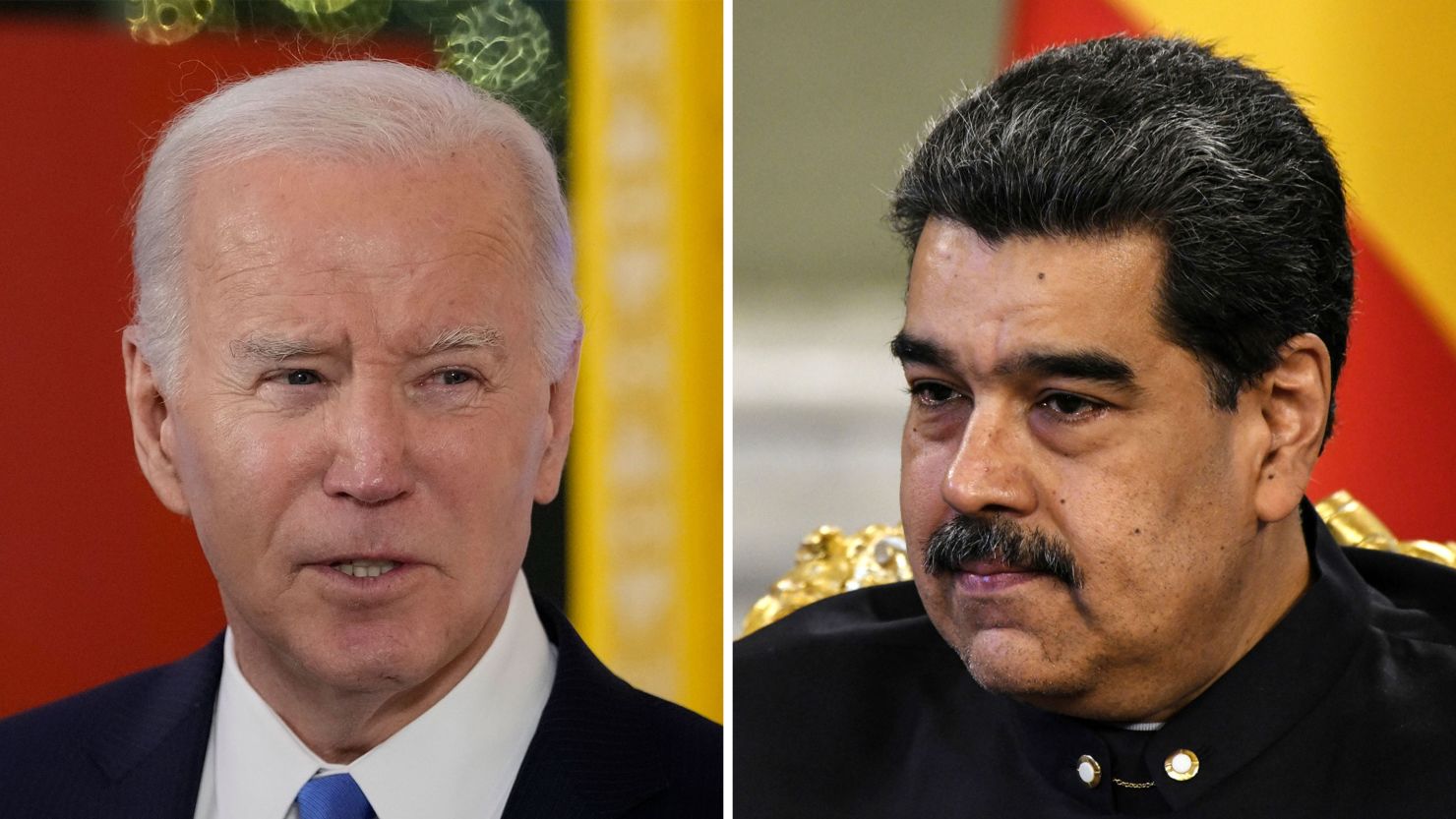The US has reached an agreement to secure the release of six wrongfully detained Americans and four other Americans held in Venezuela, senior US officials announced Wednesday,
The deal will also include the extradition of Leonard Francis, the former military contractor known as “Fat Leonard” who orchestrated the largest corruption scandal in US Navy history.
The deal marks another sign of significant thawing in relations between the US and Venezuela?after months of high-level negotiations between the two countries. The thaw comes as the Biden administration contends with a worsening situation at its southern border, driven largely by Venezuelan migrants, that has pushed federal resources to the brink.
Six of the Americans – Eyvin Hernandez, Savoi Wright, Jerrel Kenemore, Joseph Cristella, Jason Saad, and Edgar Jose Marval Moreno – landed at Kelly Field in San Antonio, Texas, Wednesday night.
“It does my heart good to see that you guys are back here on American soil. It’s going to be an interesting transition for you, but at least you will be here in the loving embrace of the country and your families.?Welcome home,” Special Envoy for Hostage Affairs?Roger Carstens, who accompanied the Americans on the flight home,?told the group.
No other Americans are currently being held in Venezuelan prison facilities, Carstens said.
Wright, upon his return to the US, detailed how he had been held with up to four others in a “very tiny cell” and was at times worried for his safety.
“It’s quite an experience to come back to Texas and to the United States of America and see all of you, such warm faces, so much love. I’m just very grateful, very appreciative for the moment,” Wright said.
Hernandez said it was a “struggle every day” during his 630 days imprisoned in Venezuela. “If you find peace there, they do everything in their power for you to lose that peace and try and make you go crazy. They have a lot of psychological tactics,” he said.
Hernandez, who thanked President Joe Biden for making the “difficult decision” to get them home, also stressed he wanted peaceful relations between the US and Venezuela. “I don’t want anything done against them in my name,” he said.

Luke Denman and Airan Berry are also in the group of 10 Americans who were released from Venezuela, a US official told CNN. The two former Green Berets were jailed in Venezuela in May 2020 for their alleged roles in what Maduro called a “failed coup.” They were sentenced to 20 years in prison.
The senior administration official said additional individuals are not being named, citing their privacy.
“These past few months have been some of the most difficult of our lives, and we are relieved that this ordeal has ended,” a statement from Wright’s family read. “We are grateful to the U.S. government for bringing Savoi home so quickly, to Mickey Bergman from the Richardson Center, to Jonathan Franks, who guided us the entire way,?and to the many others who helped to bring Savoi home. We are forever grateful.”
“In time, we will have much to say about how we think this process could better serve families and about reforms needed to the designation system, but for now, we’d respectfully ask for privacy and space as we welcome Savoi home and help him recover from the trauma of this ordeal.”
Biden?celebrated the deal in a statement Wednesday, saying he was “grateful that their ordeal is finally over, and that these families are being made whole once more.” He went on to say that Francis would “face justice for crimes he committed against the U.S. Government and the American people.”
“We are ensuring that the Venezuelan regime meets its commitments,”?Biden wrote. “They have announced an electoral roadmap – agreed to by opposition parties – for competitive Presidential elections in 2024.?This a positive and important step forward. And today, they are releasing twenty political prisoners, on top of five released previously.?We will continue to monitor this closely and take appropriate action if needed.?We stand in support of democracy in Venezuela and the aspirations of the Venezuelan people.”

“Fat Leonard” Francis, a senior administration official said, will be returned to a federal detention facility. Francis, a Malaysian national, was arrested in 2013, pleaded guilty and – while he was on house arrest awaiting sentencing – he cut off his ankle tracking bracelet and fled to Venezuela.
“His return to the United States will now assure that he is held fully accountable for his crimes, as well as for his attempt to escape from justice,” the official said.
In exchange, Biden made what officials cast as a “difficult” decision to grant clemency to Alex Saab, an alleged financier to Venezuela President Nicolas Maduro.
“In order to make this exchange, the president had to make the extremely difficult decision to offer something that the Venezuelan counterparts have actively sought, and he made the decision to grant clemency to Alex Saab, who was pending trial for money laundering, and allow his return to Venezuela,” a senior administration official said.
The US?had alleged?Saab was behind a corruption network involving a government-subsidized food program that allowed Maduro and his allies to steal hundreds of millions of dollars from the Venezuelan people while also using food as a form of social control.
Venezuela is also expected to release 20 political prisoners as part of the agreement, as well as Roberto Abdul, founder of a Venezuelan civil society organization and a political opponent of Maduro, who was arrested earlier this month.
The administration said they hoped the release of political prisoners would lead to a more democratic Venezuela leading into the country’s presidential election next year.
In October, the US agreed to ease some sanctions on Venezuela after the Maduro-dominated country took steps to open their elections.
“We hope that if we are able to successfully complete the actions hoped for today, then we will be well placed to see a more democratic path in Venezuela,” said a senior administration official.
National security adviser Jake Sullivan and his top deputy, Jon Finer, were involved in months of negotiations starting in May 2023 with the Venezuelan government, leading to what officials cast as “a very positive outcome.”
Biden was regularly consulted on the discussions and was kept “apprised of every step of this process since the direct negotiations with representatives from Venezuela started.” Carstens has made multiple trips to Venezuela to meet with the American detainees. The US secured the release of nine other Americans who had been detained in Venezuela in two prisoner swaps last year.
The administration also praised the role of Qatar, which recently mediated a temporary ceasefire in the Israel-Hamas war, in mediating the deal with Venezuela.
“For months, they’ve facilitated conversations between Maduro authorities and US officials aimed at clearing a path toward a competitive election in 2024, and the return of wrongfully detained Americans,” said a senior administration official. “We’re quite grateful for those efforts.”
Despite Wednesday’s deal, Maduro is still facing a number of charges in the US, including for drug trafficking and corruption, according to a senior administration official.
Intensified negotiations with Venezuela come amid geopolitical shifts that have made a friendlier relationship with the US more of a priority in recent months.
US easing of access to Venezuela’s vast oil reserves came as the Russian invasion of Ukraine reduced global oil supplies. And earlier this year, as tens of thousands of Venezuelan migrants crossed into the US each month, straining the resources of border cities and urban enclaves like New York, Caracas agreed to accept flights of Venezuelans being sent home from the US.
Venezuelan commitments around its 2024 presidential elections and the release of US detainees have been key to US support.
In October, Venezuela formalized steps towards a more transparent presidential election in the so-called Barbados agreement, which included an update of the election registry to include more Venezuelans living abroad and a pledge to include international observers at the ballot box next year.
The next day, the US suspended sanctions on measures related to Venezuela’s oil and gas sector operations and certain trading bans.
That same month, the Venezuelan opposition showed rare momentum after rallying around Maria Corina Machado, a center-right former legislator who has attacked Maduro for overseeing soaring inflation and food shortages, in the country’s first primary in 11 years.
Still, the Venezuelan government has moved to disqualify her from holding public office.
The Venezuelan government had also accused Abdul, who helped plan the October opposition primary, and 13 other opposition leaders earlier this month of treason and corruption.
Elliott Abrams, who served as special representative for Venezuela during the Trump administration, said that Maduro has “clearly violated the pledges he made about moving toward free elections in 2024.”
“Instead, he has moved backward—and gets rewarded for doing so,” he added, calling the release of Saab “disgraceful.”
Saab, a close Maduro ally, was considered the frontman for the regime’s corrupt money-making efforts. He was detained related to the US charges in 2020 on the Cape Verdean island of Sal as his jet stopped to refuel while making its way from Venezuela to Iran.
Speaking to CNN the next year from house arrest in Cape Verde, he denied the US charges against him, calling his arrest an “abduction” and an “exceptionally serious diplomatic conflict.” In October 2021, he was extradited to the US, where he has been held in Florida awaiting trial.
In a statement, Joseph Schuster, a lawyer for Alex Saab, thanked Biden and Maduro for agreeing to the release, saying it “allows an innocent Venezuelan diplomat to return home after serving over three and a half years in custody.”
The release of Saab is a “fundamental symbol” for Maduro, said Luis Vicente León, a Caracas-based political analyst.
“For Maduro, Saab’s release is a demonstration of his willingness not to abandon his people,” he said.
This story has been updated with additional details.
CNN’s Brian Rokus, Rashard Rose, Kevin Liptak, Jennifer Hansler, Alex Marquardt and Stefano Pozzebon contributed to this report.


